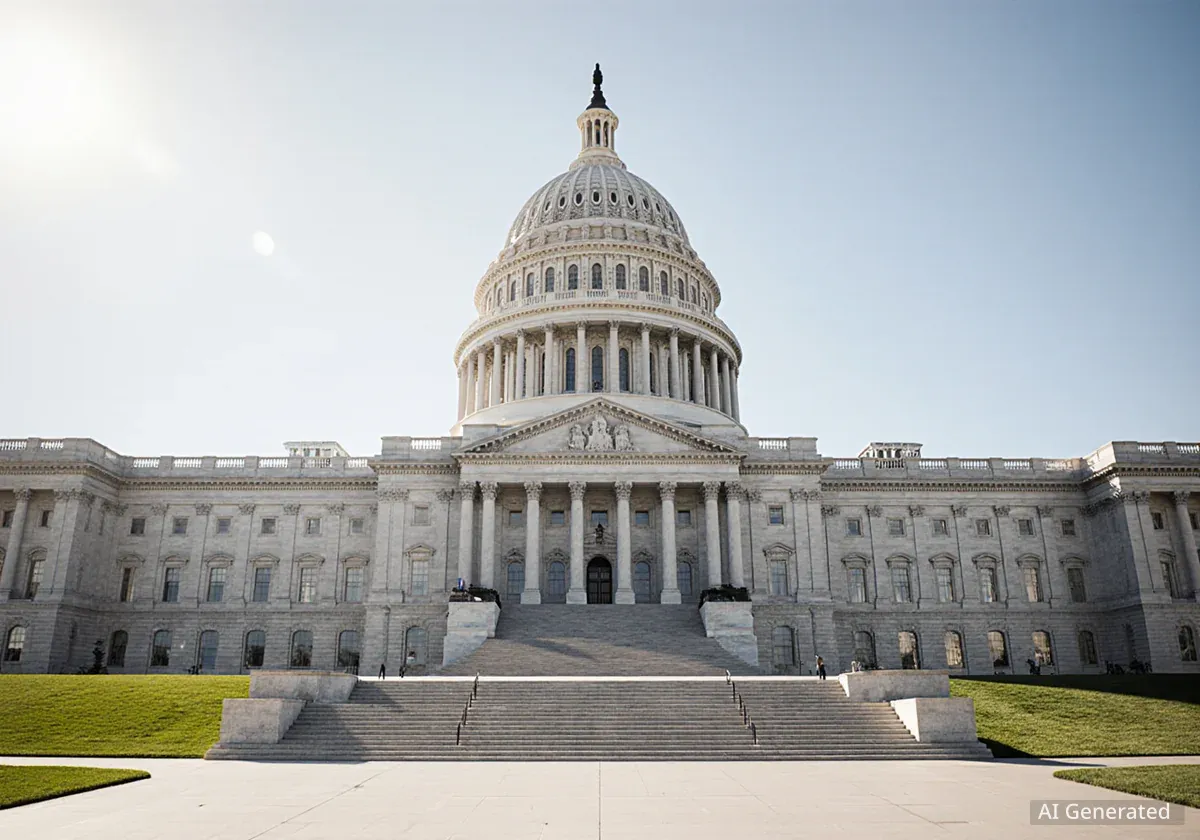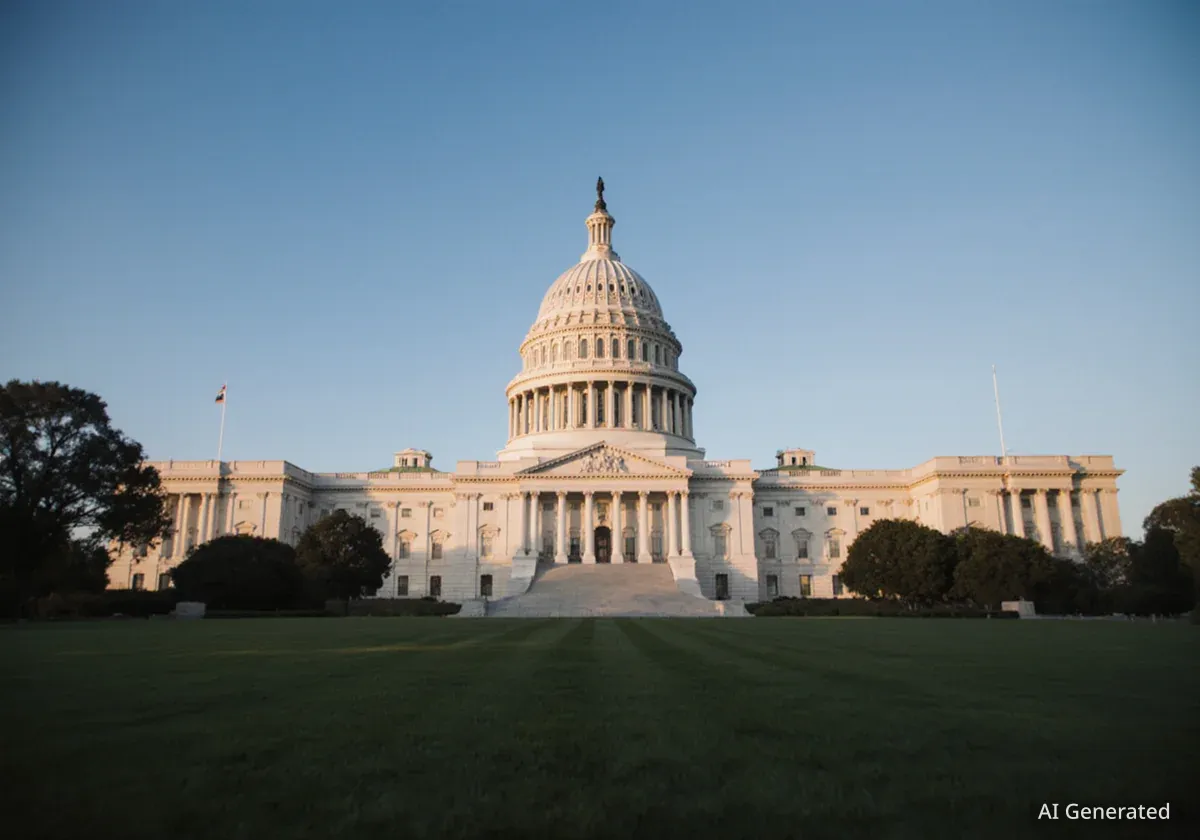Israel's Finance Minister, Bezalel Smotrich, announced that a plan for the redevelopment of the Gaza Strip has been presented to former U.S. President Donald Trump. Speaking at a real estate conference in Tel Aviv, Smotrich described the territory as a significant real estate opportunity and outlined a vision for its reconstruction and land allocation.
The comments revive discussions around a controversial proposal previously floated by Trump to transform the war-torn enclave into a luxury destination, a plan that includes the relocation of the Palestinian population. The minister's statements confirm ongoing work on a post-war strategy for Gaza involving Israeli business interests and U.S. political figures.
Key Takeaways
- Finance Minister Bezalel Smotrich referred to Gaza as a "real estate bonanza" during a conference in Tel Aviv.
- He stated that redevelopment plans for the territory are now on Donald Trump's desk.
- The plan involves discussions on how to divide the land after what Smotrich termed the "first phase of urban renewal."
- This aligns with Trump's earlier proposal to create a "Riviera of the Middle East" in Gaza and relocate Palestinians.
- A detailed reconstruction proposal, reportedly led by Israeli business figures, emerged in early September.
Minister's Comments at Real Estate Forum
During a real estate conference held in Tel Aviv on Wednesday, Israeli Finance Minister Bezalel Smotrich provided details on the government's post-war vision for the Gaza Strip. He characterized the territory as a prime investment opportunity, referring to it as a "real estate bonanza."
Smotrich indicated that the initial phase of this vision, which he described as "the first phase of urban renewal," has been completed through the demolition of existing structures in Gaza. He confirmed that the next stage involves reconstruction and land distribution.
"We have poured a lot of money into this war," Smotrich stated at the event, according to multiple Israeli media outlets. "We have to see how we are dividing up the land in percentages."
The most significant part of his announcement was the confirmation of U.S. involvement at high levels. Smotrich explicitly mentioned that the plans for Gaza's future were now "on President Trump’s desk," suggesting coordination with the former U.S. leader and his team.
Background on Post-War Planning
Discussions about the future of Gaza have been ongoing among various Israeli and international groups since late 2023. These plans have ranged from humanitarian aid frameworks to large-scale economic and infrastructure projects, often involving controversial elements like population displacement and external administration of the territory.
Links to Trump's 'Gaza Riviera' Vision
The finance minister's remarks directly connect to a proposal Donald Trump announced in February. At that time, Trump spoke of a U.S.-led initiative to "take over" the Gaza Strip and redevelop it into what he called the "Riviera of the Middle East."
Trump's original vision included the construction of luxury properties and attracting an international population to the area. He suggested that Palestinians would be forcibly relocated to other nations to make way for the project.
"I think you'll make that into an international, unbelievable place," Trump said in February, envisioning "world people living there. The world's people."
While Trump's announcement was met with widespread international criticism and seemed to be shelved, Smotrich's recent comments indicate that the concept has remained active within Israeli government and business circles and is still being pursued with Trump's team.
Details of the Redevelopment Proposal
The plan Smotrich referenced appears to be a more detailed version of a proposal that began circulating in Washington D.C. in early September. This fleshed-out plan, first reported by The Financial Times and later published in full by The Washington Post, outlines a strategy to transform Gaza into a revenue-generating hub similar to Dubai.
Key Figures Behind the Plan
The reconstruction proposal is reportedly led by Michael Eisenberg, an Israeli-American venture capitalist, and Liran Tancman, an Israeli tech entrepreneur and former military intelligence officer. They were part of an informal group that conceived the widely discredited Gaza Humanitarian Foundation in late 2023.
The proposal includes several ambitious and controversial components:
- Construction of world-class resorts and hotels along the coastline.
- Development of artificial islands off the coast for commercial and residential use.
- Implementation of mass surveillance technology throughout the new urban areas.
- A provision to pay individual Palestinians $5,000 per person to permanently leave their land.
This plan effectively brings Trump's "Gaza Riviera" concept to life with specific financial and logistical details, focusing on land appropriation and population displacement as foundational elements for the redevelopment.
Economic Viability and Previous Analysis
While proponents present the plan as an economic solution for the region, its feasibility has been questioned. Earlier analysis reported by Middle East Eye in September suggested that such a project would be economically unviable. The report argued that its success would depend on attracting a global elite willing to invest in a project built on the displacement of the local population.
Critics argue that overlooking the political and ethical implications of displacing millions of people in exchange for profit makes the project untenable on the world stage. The international outcry following Trump's initial comments in February highlights the significant diplomatic hurdles any such plan would face.
Smotrich's public confirmation that these plans are being actively developed and shared with American political figures suggests that proponents are moving forward despite these concerns. The focus on dividing land by percentages indicates a clear intent to treat the territory as a commercial asset for development and investment following the conclusion of military operations.





